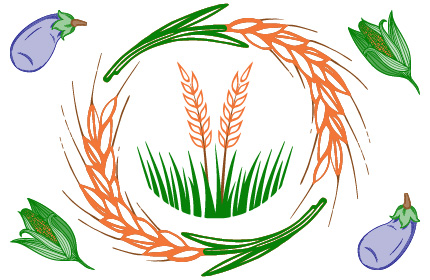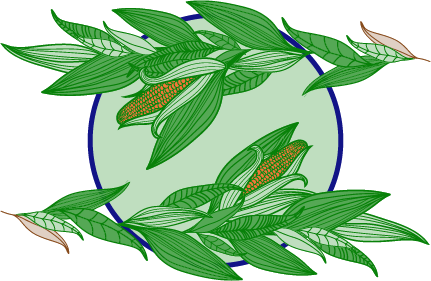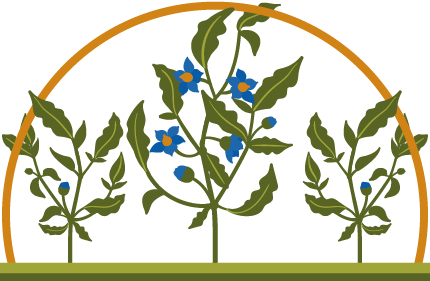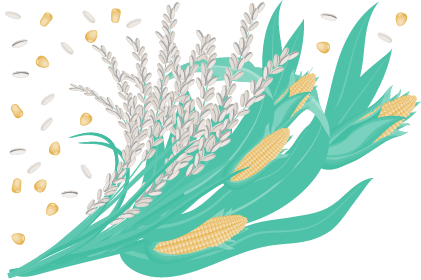Second Capacity Building Workshop on Food Safety Assessment of Genetically Engineered Plants
-

June 3, 2025-June 4, 2025
9:30 am - 4:30 pmThe LaLiT
New Delhi, India
Background
Stakeholders in South Asian countries have discussed regional harmonization of biosafety risk assessment and regulation in the area since 2014. Given the interest in advancing a consensus approach to harmonization of safety assessment of foods derived from genetically engineered (GE) plants, the Agriculture & Food Systems Institute obtained support from the United States Department of Agriculture (USDA) Emerging Markets Program (EMP) to work with these stakeholders towards a formalized approach to regional harmonization in South Asia. AFSI established an Expert Working Group (EWG) in September of 2020 with representation from Bangladesh, Bhutan, India, and Sri Lanka. All experts were nominated by Competent National Authorities in their respective countries; however, they participated in the deliberations in their individual capacities. The EWG, after several rounds of drafting, review, and discussion, developed a guidance document that describes a consensus approach to the safety assessment of foods derived from GE crops for application across the participating countries, based upon the Codex Alimentarius Guideline for the Conduct of Food Safety Assessment of Foods Derived from Recombinant-DNA. Additionally, tailored approaches for the adoption and operationalization of the regional guidance in each of the respective countries were discussed.
Overview
As part of the operationalization of the consensus approach to safety assessment in India, the first two-day technical training program on food and feed safety assessment was implemented by the Agriculture & Food Systems Institute (AFSI), in collaboration with the Food Safety and Standards Authority of India (FSSAI) and Biotech Consortium India Limited (BCIL), on September 5-6, 2023. This training program was structured to provide risk assessors on the FSSAI GM panel with in-depth technical information about the purpose, design, and conduct of studies used to inform safety assessments of foods and feeds derived from genetically engineered (GE) plants, aligned with the consensus approach. The program helped establish a baseline understanding of the concepts and principles of safety assessment for food and feed derived from GE plants. Topics included the whole food safety assessment paradigm, toxicity and allergenicity testing, compositional assessment, animal feeding studies, data transportability, and risk communication.
A second capacity building workshop on safety assessment of foods and feeds derived from genetically engineered plants is being organized on June 3-4, 2025 in New Delhi. The first day of the technical training event will provide an overview of food safety assessment, regulatory frameworks, and the global regulatory landscape for foods and feeds derived from genetically engineered plants, followed by a discussion about the handling of genetically engineered plants and their derived products. The second day will encourage discussion about regulatory cooperation among participants through the use of case studies, breakout groups, and guided exercises.

Agenda
Day 1: Context for Food Safety Assessment and Regulatory Frameworks for Foods and Feeds Derived from Genetically Engineered Plants
Session I: Inaugural
June 3, 2025 | 9:30 am - 11:00 am
| Time (IST) | Activity | Presenter | |
| 9:30 am | Welcome and Introductions Overview of the Workshop |
Dr. Vibha Ahuja Chief General Manager, Biotech Consortium India Limited (BCIL) and Senior Advisor, South Asia Biosafety Program (SABP), India |
|
| 9:40 am | Introduction to the Agriculture & Food Systems Institute September 2023 Workshop: Key Learnings Review of the Agenda |
Dr. Bhavneet Bajaj Senior Manager – Scientific Programs, AFSI, USA |
|
| 9:50 am | Remarks | Dr. Dinesh Kumar Chair, Scientific Panel on GM Foods, India |
|
| 10:00 am | Remarks | Dr. Alka Rao Advisor – Science, Standards & Regulations, Food Safety and Standards Authority of India |
|
| 10:10 am | Keynote Address Foods and Feeds Derived from Modern Biotechnology: An Overview of Safe Use for 30 Years |
Dr. Donald MacKenzie Executive Director, Institute for International Crop Improvement (IICI), Donald Danforth Plant Science Center, USA |
|
| 10:35 am | Opening Address | Shri G. Kamala Vardhana Rao Chief Executive Officer, Food Safety and Standards Authority of India |
|
| 10:45 am | Vote of Thanks | Dr. Vibha Ahuja | |
| 10:50 am | Tea Break |
Session II: Global Regulatory Landscape for Foods and Feeds derived from Genetically Engineered Plants
Day 1 | June 3, 2025 | 11:30 am - 1:45 pm
| Time (IST) | Activity | Presenter | |
| 11:30 am | Session Overview | Dr. Bhavneet Bajaj | |
| 11:35 am | Regulation of Foods Produced Using Gene Technology | Dr. Gaya Subramaniam Regulatory Scientist – New Foods Section, Food Standards Australia New Zealand (FSANZ) |
|
| 11:55 am | Regulation of Foods and Feeds Derived from GM Plants in Brazil | Dr. Galdino Andrade Professor, Department of Microbiology, Universidade Estadual de Londrina and Member, CTNBio, Brazil |
|
| 12:15 pm | TBD | TBD | |
| 12:35 pm | GM Regulations in the Philippines | Dr. Ernelea Cao Professor Emeritus, University of the Philippines, Diliman and Vice-Chair, Biosafety Committee – Department of Agriculture, The Philippines |
|
| 1:05 pm | GM Regulations in India | TBD | |
| 1:20 pm | Q&A | Dr. Bhavneet Bajaj | |
| 1:15 pm | Lunch |
Session III: Handling Genetically Engineered Plants and Derived Products
Day 1 | June 3, 2025 | 2:45 pm - 4:30 pm
| Time (IST) | Activity | Presenter | |
| 2:45 pm | Session Overview | Dr. Vibha Ahuja | |
| 2:50 pm | Low Level Presence: Overview, Guidelines, and Regulations | TBD | |
| 3:10 pm | Low Risk Products Derived from GE Plants | Dr. Aniruddha Raychaudhuri Global Lead – Compositional Biology, Bayer Crop Science, USA |
|
| 3:30 pm | Detection Methods in Biotechnology | Dr. Lalitha Gowda Chief Scientist (Rtd), Central Food Technology Research Institute, Mysore, India |
|
| 3:50 pm | Introduction to the Case Studies
|
Dr. Bhavneet Bajaj | |
| 4:15 pm | Q&A | Dr. Vibha Ahuja | |
| 4:30 pm | Close of Day 1 |
Day 2: Leveraging Thirty Years of Experience in Evaluating Genetically Engineered Plants - What We Have Learnt and How We Can Move Forward
Session IV: Regulatory Cooperation and Case Studies
September 5, 2023 | 9:30 am - 5:30 pm
| Time (IST) | Activity | Presenter | |
| 9:30 am | Recap of Day 1 and Session Overview | Dr. Bhavneet Bajaj | |
| 9:35 am | Interagency and International Cooperation: The Key to Efficient Implementation of Regulations | Dr. Donald MacKenzie | |
| 9:55 am | Overview of the OECD Consensus Document on Considerations for Collaborative Work on the Safety Assessments of Foods and Feeds Derived from rDNA Plants | Dr. Bhavneet Bajaj | |
| 10:15 am | Breakout Groups: Discussion on Case Studies | Dr. Bhavneet Bajaj, Dr. Vibha Ahuja, and Group Facilitators | |
| 11:00 am | Tea Break | ||
| 11:30 am | Regulatory Cooperation Around Agricultural Biotechnology in South America | Dr. Pedro Rocha Coordinator for Biotechnology and Biosecurity, Inter-American Institute for Cooperation on Agriculture (IICA), Costa Rica |
|
| 11:50 am | African Union Member States and the Approval of GMOs for Direct Use for Food, Feed, or for Processing (FFPs) | Ms. Modupe Adeyemo Programme Officer – Food Safety, African Union Development Agency New Partnership for Africa’s Development (AUDA-NEPAD) |
|
| 12:10 am | Breakout Groups: Discussion on Case Studies (continued) | Dr. Bhavneet Bajaj, Dr. Vibha Ahuja, and Group Facilitators | |
| 1:00 pm | Lunch | ||
| 2:00 pm | Development of the Health Canada – Food Standards Australia New Zealand (FSANZ) Safety Assessment Sharing Initiative | Mr. Jordan Bean Senior Scientific Project Coordination Biologist, Health Canada |
|
| 2:20 pm | The South Asia Harmonization Initiative: Progress So Far and The Way Forward | Dr. Vibha Ahuja | |
| 2:40 pm | Information Resource: Asia-Pacific Economic Cooperation (APEC) Policy Approaches Portal | Dr. Bhavneet Bajaj | |
| 2:50 pm | Menti-Guided Discussion on Case Studies Q&A Survey |
Dr. Bhavneet Bajaj | |
| 3:50 pm | Close of Workshop (tea served) |



